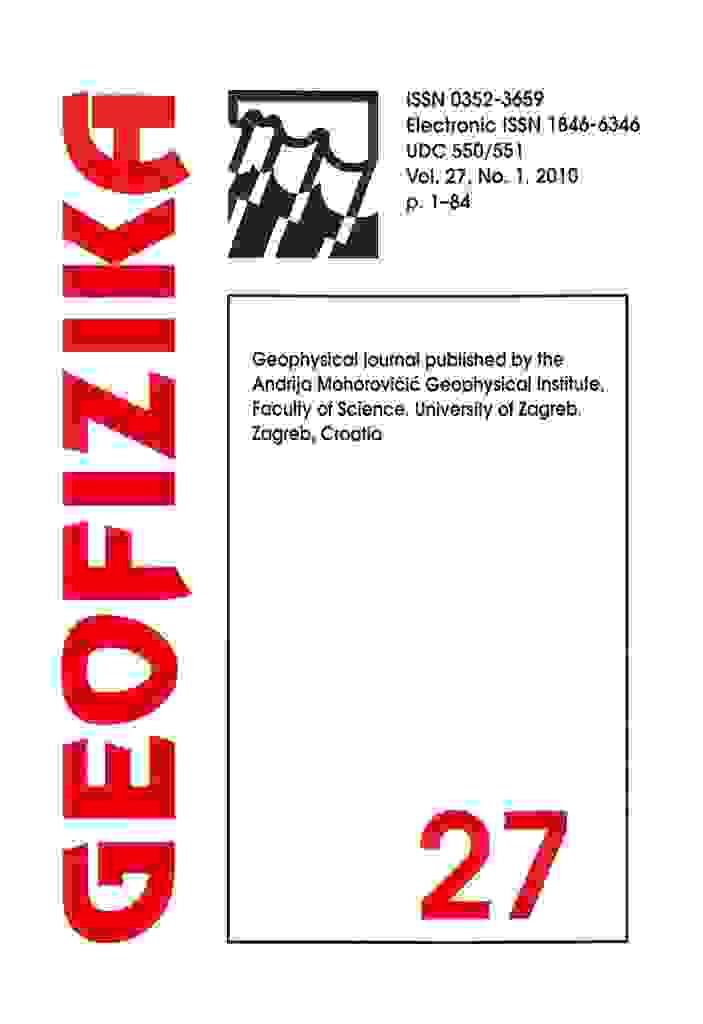Convectively coupled Kelvin waves and convective inhibition
Keywords:
Large-scale modes, tropics, destabilizationAbstract
We use a thermodynamic assumption that the vertical heating profile has the shape of the first baroclinic mode, and that the analytical expression for vertical velocity has two modes, representing shallow and deep convection. The thermal assumption of the model is given through the convective inhibition closure, i.e. negative convective inhibition results in increased precipitation. These modeled modes are the free Kelvin waves and the convectively coupled Kelvin waves. We find the latter mode to be unstable, with maximum growth rate at wavelengths of 6 000 kilometers. The model successfully captures the observed nature of the Kelvin waves and shows that convective inhibition closure is sufficient to trigger the observed destabilization of the convectively coupled Kelvin mode.
Downloads
Published
Issue
Section
License
Copyright (c) 2021 Geofizika journal

This work is licensed under a Creative Commons Attribution-NonCommercial 4.0 International License.

